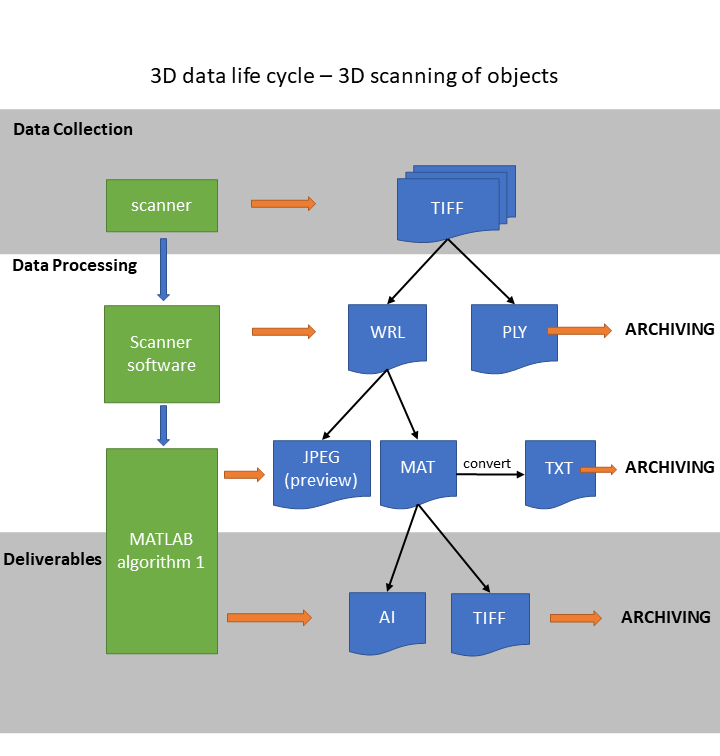Workflow:Archiving outputs of 3D scanning
Workflow Description
Purpose, Context and Content
The workflow documents the process of creating 3D models (of objects) and their derivatives by a stereo-scanner, and specifies which outputs can and need to be archived.
Data acquisition - 3D scanning
Data processing
- Generating and archiving 3D meshes.
- Positioning of an object based on its geometric properties.
Output - generating and archiving standard drawings or set of views on the model.
Evaluation/Review
Further Information
Scanner software: https://www.polymetric.de/index.php?id=44&L=2
Core publications:
Karasik, A. and Smilansky U. 2011. Computerized morphological classification of ceramics. Journal of Archaeological Science 38(10):2644-2657.
Karasik, A. and Smilansky U. 2008. 3D scanning technology as a standard archaeological tool for pottery analysis: practice and theory. Journal of Archaeological Science 35(5):1148-1168.
